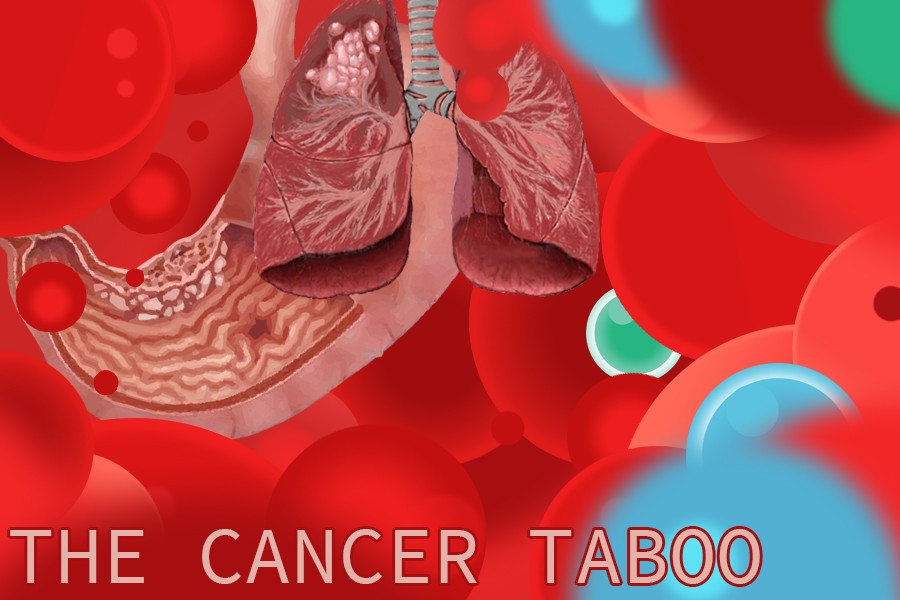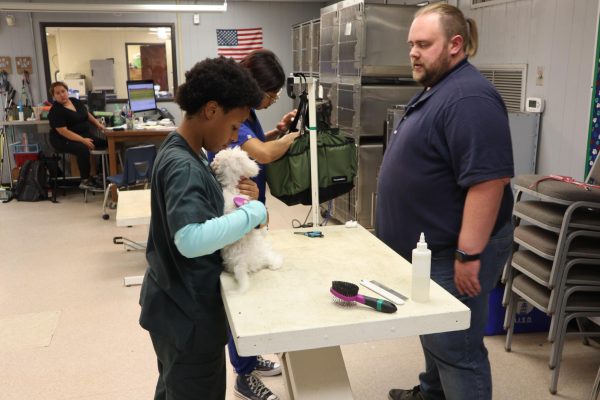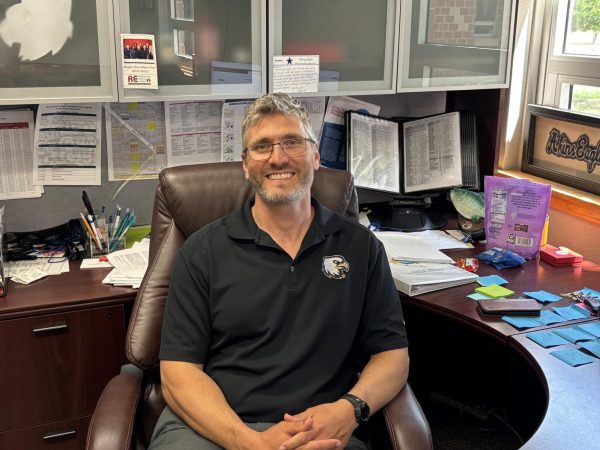Cancer Taboo
Silence about cancer limits help for victims
January 7, 2016
Thousands of high school students across the United States take a health course every year, and in it, they learn about various diseases, ranging anywhere from drug-related health issues to STDs. But, for a health class, it seems so limited.
Students finish the course, despite the many awareness campaigns, not knowing a single bit of information regarding some of the diseases that plague the world — one of the most prevalent of these being cancer.
Cancer is a particularly wide umbrella of diseases that includes anything regarding the reproduction of abnormal cells that spread uncontrollably throughout the body and destroy bodily tissue. According to the National Cancer Institute, cancer is among the leading causes of death worldwide. In 2012 alone, in the 14 million cases that were reported, 8.2 million of them resulted in death.
The disease is categorized by tumorous growths that are malignant (very deadly or infectious: malevolent) in any particular part of the body. Cancer doesn’t discriminate, and can affect any part of the body, in any person. Needless to say, cancer is no joke, and it affects more people than you think.
Walk down the hall, and it is statistically likely that every one in 20 people that you have passed had or have been affected by cancer in some way. According to the American Cancer Society, every one in two males and every one in three females are at risk to develop cancer.
With statistics like these it’s a wonder how people don’t talk about cancer. It seems to have a social taboo surrounding it. Whether it’s out of fear, ignorance or people being overly sensitive, no one can say. The saddest part about this is that it keeps people in the dark. People that are afflicted with any variant of cancer end up becoming victims of isolation due simply to this basic lack of knowledge of the situation.
New Tech Counselor Christine Kesling expressed that she too feels “people don’t talk about it much,” and as such “you feel very isolated.” Kesling’s father and husband both died of cancer. Her father was a victim of a pancreatic cancer at the age of 64, and her husband the victim of a rare, Non-Hodgkin’s Lymphoma known as peripheral T-cell lymphoma, which is a cancer that attacks the immune system via the liver and white blood cells.
To go through with the process as a family member of someone who has cancer is very difficult. “Emotionally it’s like a roller coaster,” Kesling said. The process is one of the most difficult things for cancer patients and the people involved with the patient alike. Kesling said it takes its toll on everyone very quickly, and the uncertainty and the stress involved with the situation are terrible. For Kesling, and many others, the most difficult part is knowing when the end is, and going through it with your loved ones.
“It changes your entire life,” Kesling said. “Financial circumstances change your lifestyle suddenly changes.”
Kesling said she is somewhat comforted that at least her father and husband passed away peacefully.
Talking about cancer more openly could help a lot of people, she said. Social Worker Colleen Arnold, as the head of the Student Support Services office at Akins, is accustomed to and has had many experiences with students who have cancer or who have had family members who have had cancer. “Sometimes parents and friends keep people out to protect them,” Arnold said. Sometimes, however, people need to be kept in the loop. “Sometimes we help by educating a lot of times it’s counseling reports.”
“It doesn’t always end in death,” Arnold said. “Sometimes you just need to realize that it just changes the future you had planned for yourself.”
Cancer affects millions of people every year. Lung cancer, for example, makes up for 13 percent of all cancers, and is the most likely to be contracted by the everyday person. Like the majority of cancers, the symptoms don’t appear until the cancer has developed into its later stages, and at those points, the pain associated with it can be hard to overcome alone. Lung cancer causes pain in the chest or ribs, and is associated with frequent coughing (often coupled with blood) and sharp pains while breathing.
Other major cancers include: stomach cancer, the sixth most common cancer (6.8 percent of the reported cancer population), and involves symptoms such as nausea, bloating, indigestion, and the loss of appetite; non-Hodgkin’s lymphoma and leukemia, 10th and 11th most common cancers respectively (collectively 6.1 percent of the cancer population), whose symptoms involve weight loss, frequent infections, fatigue, easy bleeding or bruising; liver cancer; brain cancer; heart cancer; the list goes on.
People need to know all the details concerning cancer. It would be better for the people around them, and would help the people that do have cancer or have family members afflicted with it get through the hard times. It’s nice to know that they always have some kind of support at school, but if they could get that help everywhere, it would make the world a better place. Having everyone just a bit more educated and aware and more willing to talk about the topic is just the place to start.








